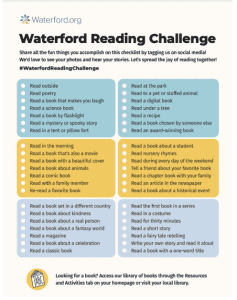Tackle the summer learning loss with the right tools: printable materials for teachers and families as the school year ends
Educators know the summer slide is real—many students lose ground when learning routines are disrupted. But summer can also be a time for growth, exploration, and progress.
With the right support and resources, families can help their children hold onto what they’ve learned and come back stronger. Teachers, administrators, and caregivers all play a part in keeping learning going in simple, engaging ways. It doesn’t have to feel like school—it just needs to feel possible.
The mindset switch from “preventing summer slide” to building student strengths through summertime engagement might seem simple, but it’s an effective way to reframe the challenges your learning community faces when the dismissal bell rings on the last day of school.
Here are six ways to avoid the summer slide and help your learning community stay connected and growing this summer:
1. Partner with families to keep learning going
Partnering with families is the most important step to providing support over the Families are students’ first teachers—and their greatest allies during the summer months. When schools provide resources and encouragement, families are more equipped to keep learning going at home.
One easy way to support them: share Waterford’s Printable Summer Learning Calendars. These month-by-month activity guides include fun, at-home learning ideas for PreK through 2nd grade—available in English and Spanish.
June
July
August
2. Promote summer reading
Books help children explore new ideas, build vocabulary, and fall in love with learning. Encourage families to join summer reading programs at local libraries, which often have fun programs year-round.
Your school could partner with libraries or you can use Waterford summer reading challenge printable (in English and Spanish) as a fun way to keep track of reading progress. Bonus: Have teachers create suggested summer book lists for the grade they’re entering next year.
3. Free summer learning programs & digital tools for elementary students
Digital tools can make learning easy and accessible—especially when families can use them on their own time. Share trusted, research-based websites and apps that offer interactive activities in reading, math, and science. Make sure the platforms align to your school’s curriculum.
Waterford offers several options to support summer learning. Share the links below or print out a flyer that teachers can hand out in class. Families can then create an account and get access to great resources at no cost!
- Waterford Upstart – PreK families can sign up for early literacy and math activities
- Waterford Mentor– Early elementary families get simple learning support at home
- Waterford’s YouTube channel – Explore hundreds of educational videos and songs
4. Highlight free or low-cost local learning opportunities
Summer is also the perfect time for real-world exploration. Help families discover local experiences—like parks, museums, science centers, or outdoor storytimes—that can turn an ordinary day into a learning adventure.
Consider making a flyer or digital list of free or low-cost educational activities in your area that teachers can share with families before the school year ends.
5. Encourage summer journaling
Writing over the summer helps students process their thoughts and keep communication skills sharp. If your school budget allows, encourage teachers to send home a small notebook and simple journal prompts to inspire creativity.
Need ideas? Try questions like:
- What’s the best thing you did this week and why?
- What’s one cool thing you learned today?
- If you could visit any planet, which one would you choose?
Younger children can draw their answers—or ask a family member to write for them.
6. Coordinate summer support for all learners
Families whose children have physical or learning disabilities need access to Don’t forget to include families of students with disabilities in your summer planning. Coordinate with your school’s special education team to ensure these students have access to accommodations and resources that fit their needs.
Preventing the summer slide starts with support
When we shift from a mindset of “learning loss” to one of growth and exploration, summer becomes a powerful opportunity to reinforce skills, nurture curiosity, and build momentum for the year ahead.
With the right tools and encouragement, students won’t just be ready for the next grade—they’ll be excited to begin.


